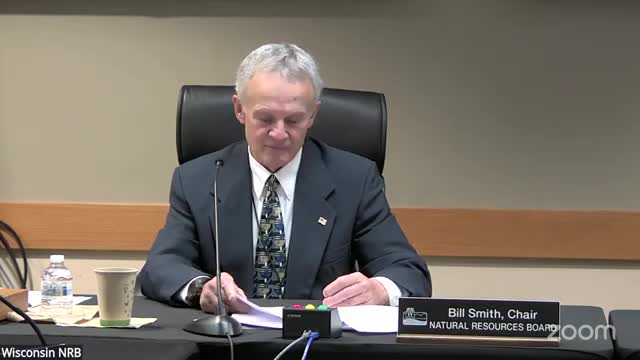Natural Resources Board adopts rule allowing municipal financial test for solid-waste site closure costs
Get AI-powered insights, summaries, and transcripts
Subscribe
Summary
The board voted to adopt board order WA-8-24, creating a permanent alternative method for municipally owned solid-waste facilities to demonstrate owner financial responsibility (OFR) using a financial test similar to private net-worth tests; the rule moves to the governor for review.
The Wisconsin Natural Resources Board on Oct. 22 adopted board order WA-8-24, a permanent rule that allows municipally owned solid-waste disposal facilities to use an alternative financial test to demonstrate owner financial responsibility for closure and long-term care costs.
The rule, presented by Michael Schmidt, business support and IT section manager with the department's Waste and Materials Management Program, formalizes an OFR financial test for public owners and replaces an emergency rule the department had previously implemented. Schmidt told the board the permanent rule aligns with Act 107, passed in March 2024, and will proceed to the governor's office for final review if approved.
Why it matters: municipalities are not structured with “net worth” the way private firms are, Schmidt said, so the rule creates a test that gauges whether a public owner has adequate resources to meet post-closure obligations. The board and department expect the rule to reduce the need for municipalities to post cash or other devices that tie up funds, and to let some municipalities reallocate those funds to earn higher interest while still meeting long-term care obligations.
Key details: the permanent rule retains two substantive changes made in response to public comment: extending the auditor submittal deadline from 90 days to 210 days to align with federal code and replacing a requirement for a certified public accountantopinion with a CPA report stating the municipality meets the statute or rule requirements. The department also clarified review procedures and the consequences of positive or adverse determinations.
Board action: Deb Dassell moved adoption; Patty Schachner seconded. The board carried the motion by voice vote. The roll call earlier in the meeting showed six members present; the motion was approved without recorded no votes.
What the department said next: Schmidt told the board seven municipalities had already submitted under the emergency rule and the department expects more to use the financial test over time; estimated annual savings for municipalities that switch mechanisms vary but the department said 1%–3% of invested balances is a plausible range depending on the mechanism chosen.
What remains: the rule will go to the governor for the statutory review and signature process. The department said it will work with municipalities that have previously submitted under the emergency rule to implement the permanent rule.
